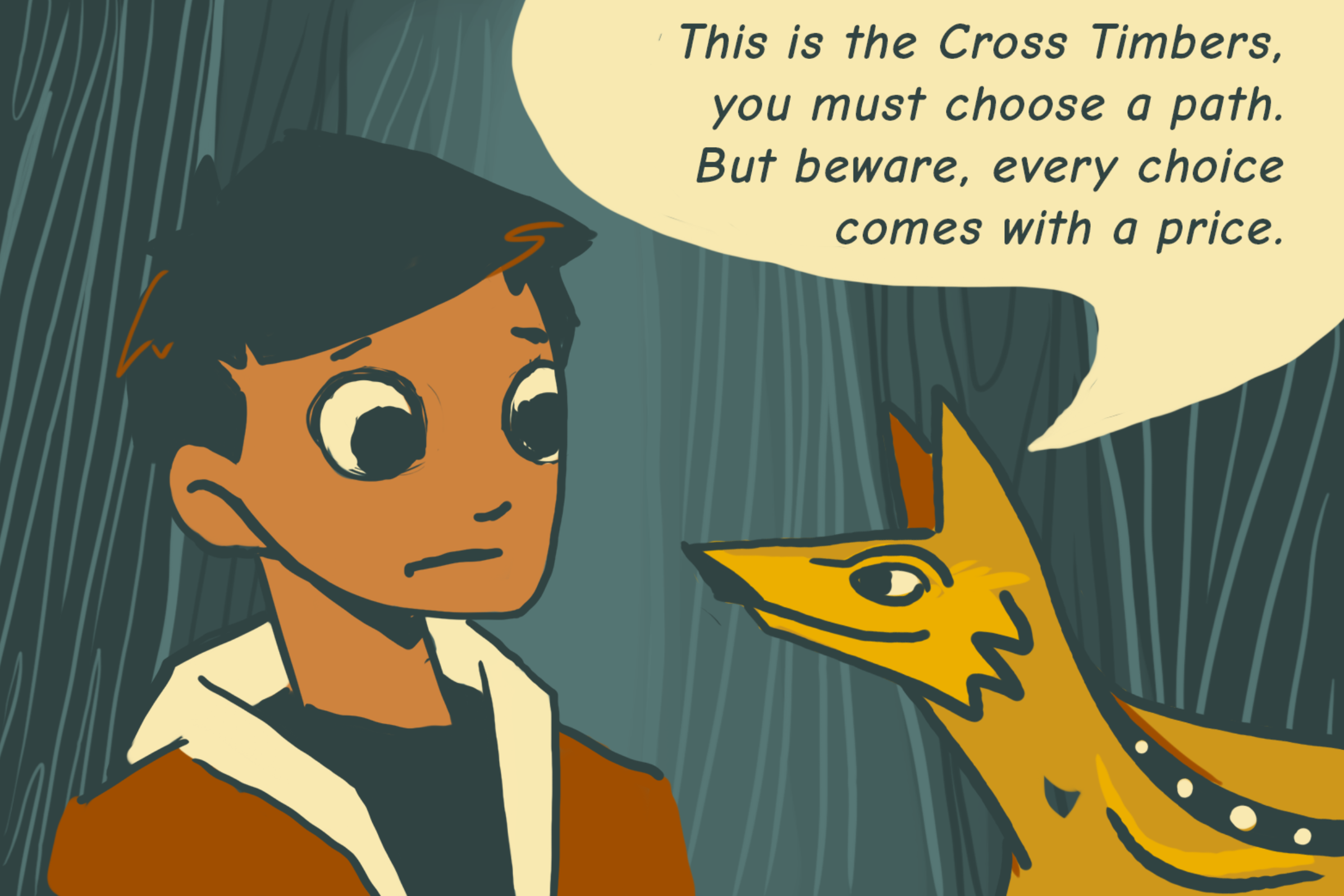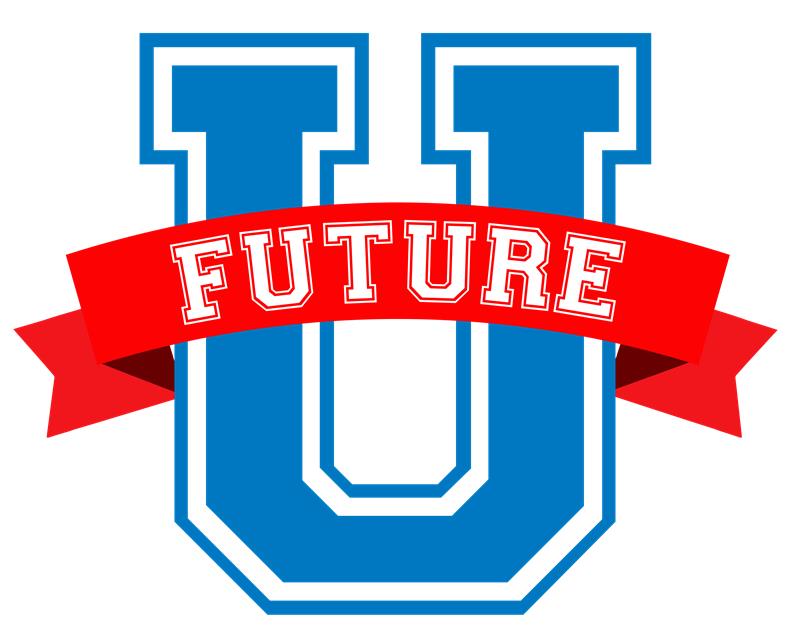Summary
In this activity, you’ll explore college pathways through an interactive comic. You will discover the key questions to ask—and who to ask—as you evaluate different types of education opportunities. By the end, you’ll have a better idea of what type of higher education option is the best fit for you after high school.
Overview
Take the College Fit Survey.
Read the interactive comic Lost in the Cross Timbers.
Complete the attached “What Do You Want Out of College?” handout.
Take the College Fit Survey again.
Explore the College Fit Infographic.
Activity #1: College Fit Survey
Before you read the comic, please take the College Fit Survey. This survey should help you understand your own ideas about what college might fit your needs.
Keep your survey results in mind. You will take this survey again to evaluate how much your thinking changes after you explore the comic.
Activity #2: Read the Comic

Read the interactive comic: Lost in the Cross Timbers (https://k20center.ou.edu/e-learning/cross-timbers/)
Be sure to select or click on each panel to advance the story.
Activity #3: Complete the Values and College Fit Worksheet
Now that you've read the comic, you’re ready to reflect on how to determine whether a college would be a good fit for you. Think about how well a college might address your academic, social, financial, and other needs.
Let's dive deeper into college fit. Print out or open up the attached What Do You Want Out of College? handout. Then explore College Board's article "How to Decide What College to Attend." Fill out the handout with information you find as you read the article.
Based on your answers, find three colleges with OKcollegestart.org's College Matching Assistant (k20.ou.edu/collegefitsurvey) that align with your needs. Then, with your findings, write down your possible next steps for exploring those postsecondary pathways.
Activity #4: Take the Survey Again
Take a moment to complete the College Fit Survey (https://ousurvey.qualtrics.com/jfe/form/SV_7TLNEkj0VWSkpds) again.
Compare your results. How much has your thinking changed? Reflect on how your responses may have evolved to see how your understanding of college fit has developed as you've worked through this activity.
Be sure to check out the attached College Fit Infographic. It's full of resources, links, and materials to support you as you select postsecondary education pathways to explore.
Definitions
Postsecondary Institution (PSI): A school students attend after high school to keep learning. This could be a college, university, or technical school.
Degree: A certificate received from a PSI proving that students have completed a certain number of classes in a major area. A person who holds a degree knows a lot about the subject they majored in.
Ivy League: A group of eight highly selective universities in the U.S. These schools are associated with academic excellence. People sometimes use "prestigious" to describe schools that are highly respected.
University: A PSI that typically offers four-year degrees in many subjects. Some offer advanced degrees, like a master's or doctorate, which take longer than four years of study to obtain.
Community College: A smaller, more affordable PSI where students can take classes for two years to earn a certificate or a degree. It's possible to transfer these credits to a university or launch straight into a job.
CareerTech: A PSI focused on training students in specific skills for careers like cooking, car repair, or computer programming. CareerTechs may award certificates instead of traditional degrees.
Grants: Free money given to students to help pay for college or training. Grants don't need to be repaid and typically come from the government or a school based on financial need.
Scholarships: Money awarded to students to help pay for school. Scholarships tend to be based on things like good grades, talents, or other achievements. As with grants, scholarships do not need to be repaid.
Fellowships: Special programs that give students or professionals extra money and support to do research, study, or work in a specific field. Fellowships are usually for people who have already finished some college or are working on advanced degrees.
Resources
BigFuture. (n.d.). How to decide what college to attend. College Board. https://bigfuture.collegeboard.org/plan-for-college/find-your-fit/how-to-decide-which-college-to-attend
OKcollegestart.org. (n.d.). College matching assistant. XAP Corporation. https://www.okcollegestart.org/College_Planning/Explore_Schools/Matching_Assistant/Matching_Assistant.aspx#/



